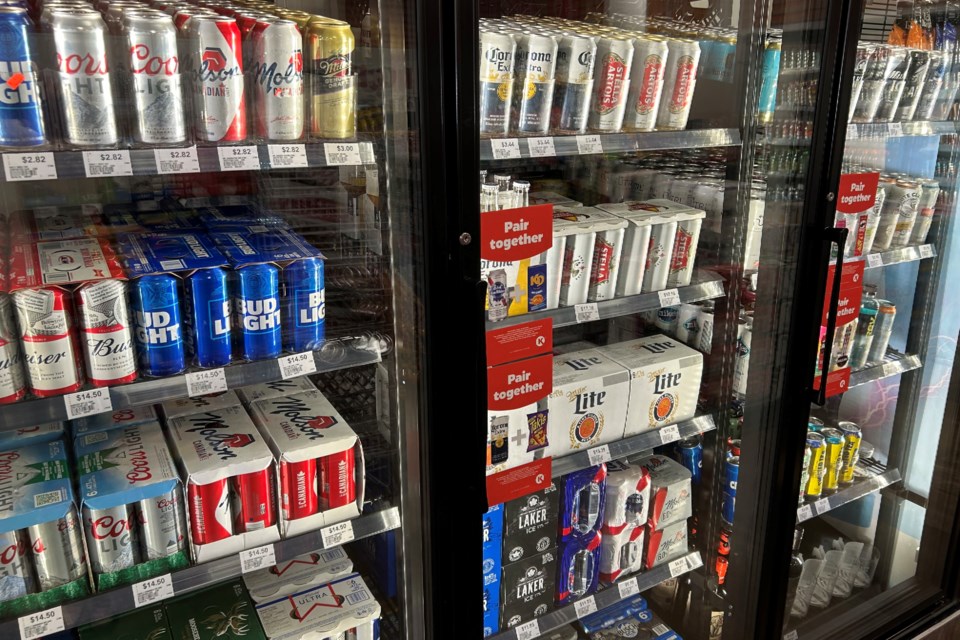Tim Hainsworth, who co-owns Corner Wines in South River with his partner Martha Jacobs, reacted to news that corner stores can now start selling alcohol.
“We don’t anticipate any changes. We don’t sell alcohol per se,” Hainsworth said. “We sell wine kits and our clients make their own wine. Our customers plan ahead by buying a bunch of bottles at a time. Ours is a niche base.”
In nearby Sundridge, Stoney Lake Variety began selling alcoholic products like beer, cider, wine and ready-to-drink alcoholic beverages earlier this month, as did Capstone Market further south on the highway in Burk’s Falls.
But for Hainsworth this development hasn’t even been a conversation piece when people come into his shop to order, make and bottle their wines.
“I’m not being flippant, it just hasn’t come up,” said Hainsworth. “It’s been business as usual and we don’t expect any drop in sales”.
In late May, the province announced its plans to allow every convenience, grocery, and big-box store to sell beer, cider, wine, and ready-to-drink alcoholic beverages in Ontario by the end of October.
While Anne Kothawala, CEO of the Convenience Industry Council of Canada, said in a written statement that expanding beverage alcohol sales would "create new revenue streams for our local businesses and meet customer demands in an increasingly competitive marketplace," Canadian Mental Health Association Parry Sound Muskoka (CMHAPSM) has concerns.
"We believe that increasing availability of alcohol will lead to negative health outcomes, including violence, impaired driving, related injuries, and increased suicide rates," wrote Diane Brown-Demarco, CMHAPSM executive director, in an email.
"We also know that services are scarce in Muskoka and Parry Sound, and there is no access to publicly funded, local, residential, hospital, or community-based withdrawal management or treatment. People needing these services must travel great distances, which is a significant barrier for people experiencing the harms associated with addiction."
Brown-Demarco added that Ontario’s emergency rooms experienced an increase in visits attributable to alcohol in 2013 and 2014, after alcohol sales were introduced into grocery stores.
“CMHAMPS encourages the government not to increase the availability of alcohol sales in our communities and to implement a comprehensive alcohol strategy to reduce harms,” wrote Brown-Demarco.
If you struggle with addictions and mental health issues, there is help. ConnexOntario provides treatment service information if you have problems with gambling, drugs, alcohol or mental health. Call toll-free at 1-866-531-2600 or visit www.connexontario.ca.
Rocco Frangione is a Local Journalism Initiative reporter with Almaguin News. The Local Journalism Initiative is funded by the Government of Canada.



